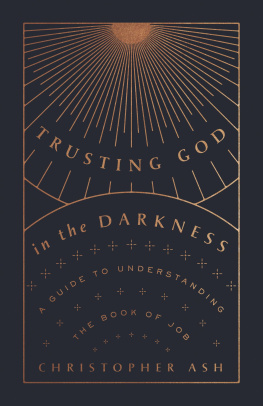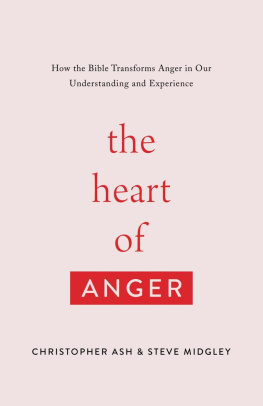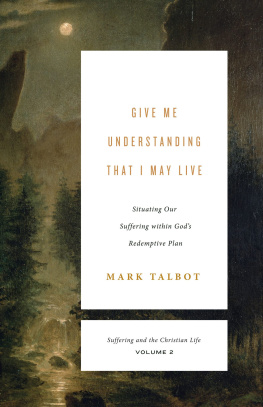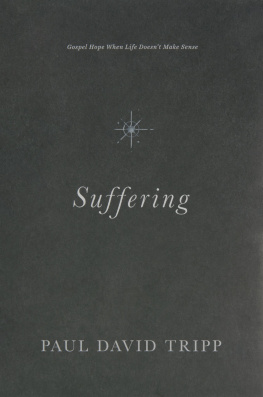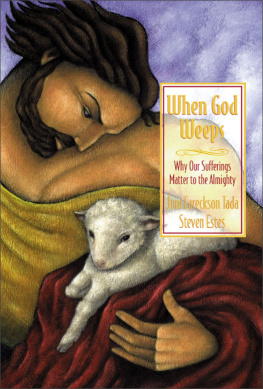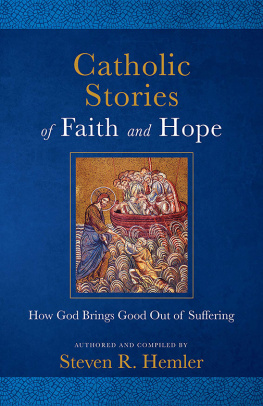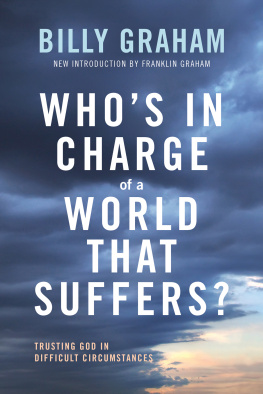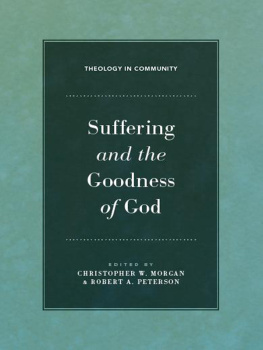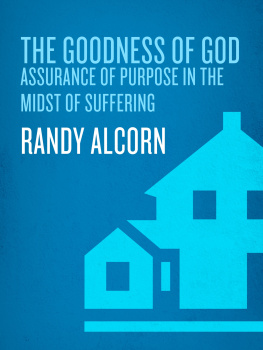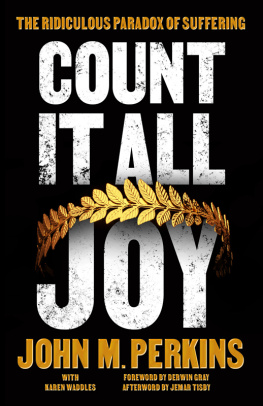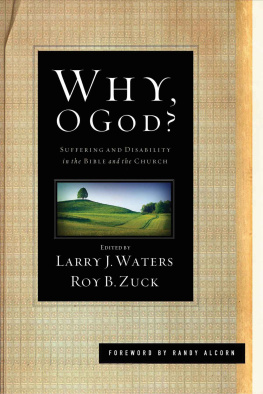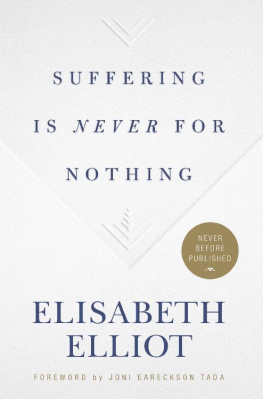Table of Contents
Landmarks
Contents
Job 427
An impressive sports car pulled up and parked just in front of my family. We waited with some interest to see what powerful and impressive human being would get out. For surely with such a fine car on the outside, the driver inside must be equally awesome. Instead, a pot-bellied, balding, unshaven scruff of a man emerged and waddled away. This is a parable: the exterior may mask a very different reality inside. In this chapter we are going to watch as the opposite happens. We will see a deeply unimpressive exterior peeled back to reveal an interior of infinite value. We are going to watch as a true worshiper of God is revealed. We are going to see two marks of the real believer. Both marks are deeply paradoxical. They cut right across all human instincts about religion. These hallmarks of a true worshiper are utterly contradictory to what we might expect.
In the 19 and consider the God of Job.
Sometimes in the council chamber of heaven, God looks down at the earth, points, and says to Satan, Look at Simon there: hes a real believer. Or Look at Nicola there: she really worships me. We may be sure that Satan replies, as he did for Job, Oh, you think so, do you, Lord? Well, I admit they do look a bit like believers on the outside. But I doubt very much youll find a real worshiper inside. And God says, Its very important for us to know publicly without doubt whether he or she is a real worshiper. So you take away from her the externals, what she valuesand then well see. Take away from her some precious relationship, frustrate some hope, inflict some pain, and then well all publicly see if she is a real worshiper. Face him with serious loss, strip away his security, dent his status, and then the real person will step out, and well see.
That is the conversation of Job 12. What is the only sure test by which the world will know who are real worshipers of the true God and who are just pretending? Answer: loss and suffering. The only sure test is to strip from worshipers something of value, and then we shall see if they really worship the living God and bow down to him simply because he is God. Only when worship comes at a cost may we tell if it is true. Suffering is the fire that refines and reveals the heart of worship. We see this again and again in church life when it costs to follow Christ. A Christian wants to marry a non-Christian, knowing it will be a union in which at the deepest level they will pull in opposite directions. It will cost to break the relationship off and worship God wholeheartedly. That is when true worship is revealed. It costs to be an open Christian at school or college or in the officeperhaps a loss of face, prestige, or reputation. It is loss that reveals the true worshiper and separates the fair-weather Christian from the true worshiper.
We are going to watch in this section a true worshiper revealed. And we may be surprised by the hallmarks that mark him out as the real thing. For on the outside Job is alone, scratching at his agonized skin, sitting on the rubbish dump outside the city gate (2:8). He has no status, no job, no family, and no hope. And yet we shall see here, despised and rejected, outside the city wall, the pure gold of a real believer. In Shakespeares words:
Sweet are the uses of adversity,
Which, like the toad, ugly and venomous,
Wears yet a precious jewel in his head.
We are going to see the precious jewel of real worship in the midst of ugliness and venom. And as we see this precious jewel unveiled, we remember a later believer hanging naked outside the city wall, despised, rejectedand yet precious beyond compare.
So as we look at Jobs side of the cycles of speeches, we shift our focus from these three comforters, so confident, so impressiveand so wrong. And we listen to Job in his laments, so pathetic, so poignant, so confused, so full of doubtand so deeply right with God. These are rich chapters that repay slow, thoughtful reading, so their riches and puzzles soak into us. But again, as in the last chapter, we must be content with an aerial tour.
Here are two hallmarks of a real worshiper, revealed by suffering.
A Unique Pain
There is a pain for the believer that gives suffering a unique sharpness. Suffering is the common experience of the human race. All sorts of people get ill; all kinds of people are touched by war, famine, and earthquake. And yet suffering touches the believer with a sharper and uniquely piercing pain. How so? Believers do not necessarily and always suffer more or worse. They do not get more illnesses or suffer worse from natural disasters. So in what way is the pain of a believer sharper?
It is what is sometimes called the problem of pain . The worshiper truly believes that God is sovereign. He or she really believes that the living God is in control of his world. And so, when suffering comes, it must be God who ultimately sends itafter all, he is in control, is he not? It is not just that it hurtsalthough Jobs suffering hurts abominably. It is more than this: it is the conviction that it is God who is in some sense doing the hurting. We see this in Jobs first reply (Job 67). In Job 6:24 Job laments that God is like an archer firing poison arrows at him. He returns to this image in Job 7:1721, where in a strange variation of Psalm 8 he asks, What is man, that you make so much of him?
While Psalm 8 marvels at the dignity entrusted to human beings, of caring for Gods world, Job cannot see it. For him, God simply will not leave him alone, but insists on choosing Job to be his target for archery target practice (7:20). God is an accuser who picks legalistically over his past (7:21a), a God with no grace and no forgiveness. And its so unfair. Because, he says in effect, I have confessed my sin, I am a real believer, I am living a new life. So why, oh why, does God persist in finding fault with me? (see 13:26). I do not deserve it. We find similar complaints in the Psalms (e.g., Ps. 44).
And it is not just Job; the injustice Job experiences is targeted at others as well. In 9:2124 he says he is past caring about himself. But this kind of thing is happening all over the place, so much so that he casts in Gods face a terrible accusation: He destroys both the blameless and the wicked (9:22). That is a very serious accusation; no wonder Jobs friends see red. For if that kind of accusation can be proved against a judge or government official, then he or she must resign, if there is to be any justice. I really think, implies Job, that God ought to resign. Its a true accusation, for when an epidemic brings sudden death, God mocks the despair of the innocent. When a land falls into the hands of the wicked, he blindfolds its judgesso that there is no justice (9:2324). Job reasons, If it is not he, who then is it? (9:24). That last question is deeper than Job maybe realized, as we who have read Job 1 and 2 know. Whose hand is doing this? This is a question to which we shall return.
In 16:714 Job experiences God as some kind of cosmic sadist (using C. S. Lewiss memorable phrase). (We shall see when we come to the monster Leviathan, in Job 41, that what Job perceives as God attacking him is not quite so simple.) It all seems to Job to be deeply unfair. And yet surely God is just, isnt he? This is the added pain for the believer living in a world of undeserved suffering. For undeserved suffering is a threat to the moral foundations of the universe. Either God is not in control, or he is not fair. And that causes the believer deep and sharp perplexity.
We saw in the circular argument, clung to at the price of honesty. Their worldview can be believed only if we close our eyes to the reality of the world we are supposed to be viewing, where there are believers with a clear conscience, no hidden sin, trusting in God for forgiveness and walking in the light with him, and yet who suffer terribly.

